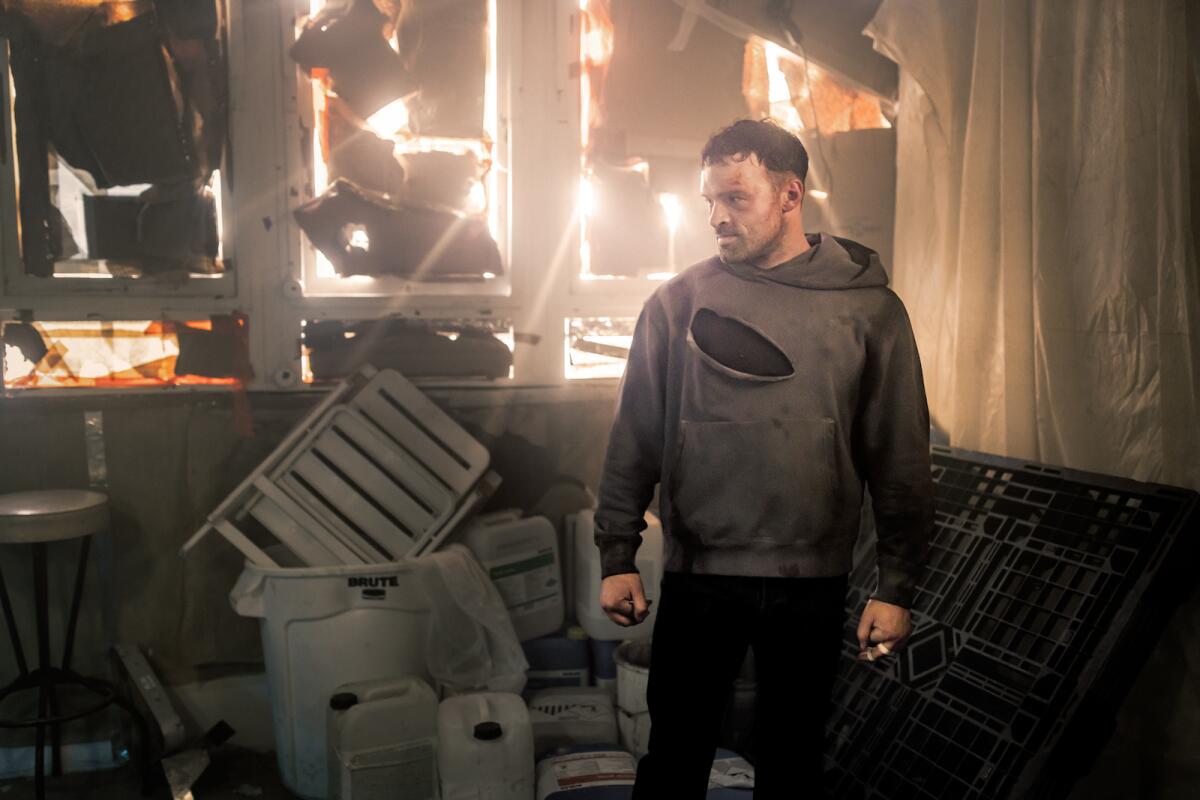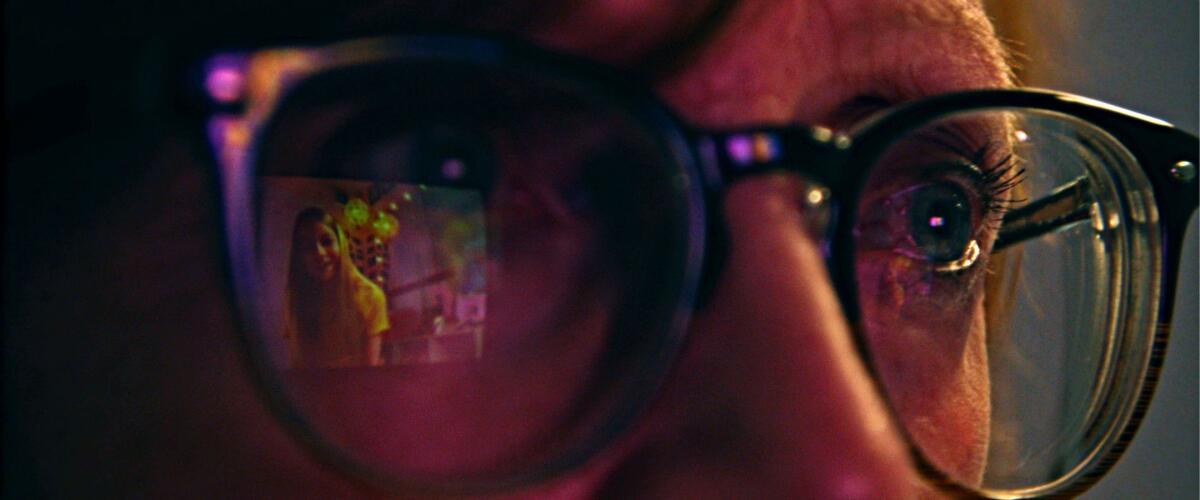Punch, shoot, brood — French action star Alban Lenoir does it all in gritty ‘AKA’

- Share via
‘AKA’
Anyone who regularly searches for action movies on Netflix probably knows the name Alban Lenoir, co-writer and star of the popular film franchise “Lost Bullet.” But they may not know Morgan S. Dalibert, the “Lost Bullet” cinematographer, who directs Lenoir in his latest gritty Netflix thriller “AKA” — the kind of well-crafted, low-ambition gangland shoot-em-up that plays well on streaming services.
Lenoir stars as Adam Franco, a stoic bruiser who overcame a tragic childhood to find a home in law enforcement as an undercover agent. As the film begins, Adam is asked to infiltrate a mob boss’ organization as a bodyguard, part of a larger operation to trap a suspected terrorist. To gain the trust of the steely Victor Pastore (Eric Cantona), Adam must befriend his family, including his headstrong daughter Hélène (Lucille Guillaume) and adorable stepson Jonathan (Noé Chabbat).
“AKA” doesn’t add any new wrinkles to the undercover cop genre; but Florent Astolfi’s cinematography is suitably moody, Etienne Forget’s score provides texture and drive, and Lenoir and Dalibert (who co-wrote the script) keep the conflicts clear. There’s a real dilemma for the hero here, who feels called to protect Victor’s kids, even when it puts him in opposition to his superiors in the French government — who will almost certainly abandon him if the mission goes sour. This is an ideal role for Lenoir, who handles the punching and shooting parts of action movies well, but really excels at the brooding. His Adam is aptly named; he’s a biblical kind of hero, sinning and suffering.
‘AKA.’”In French with subtitles (or dubbed). TV-MA, for language, nudity, sex, smoking and violence. 2 hours, 4 minutes. Available on Netflix

‘The Artifice Girl’
Writer-director Franklin Ritch’s button-pushing science-fiction drama “The Artifice Girl” is divided into three segments, the first of which sets the tone for the movie. A brilliant engineer and special effects artist named Gareth (played by Ritch) is interrogated in an imposing, windowless basement by two government agents, Deena (Sinda Nichols) and Amos (David Girard), who are part of a special task force to catch sexual predators. They have found disturbing pictures and videos of a preteen girl named Cherry (Tatum Matthews) in Gareth’s files. The twist? Cherry isn’t real; she’s an AI simulation Gareth created to trap pedophiles. A twist on that twist? What Gareth and Cherry are doing is still upsetting.
“The Artifice Girl” is structured and staged like a three-act play. Each piece, of roughly equal length, takes place in a single room with just a few actors. Each also moves the story further into the future. (In segment three, Gareth is played by Lance Henriksen.) The action is in the dialogue, which presents a series of invigorating arguments about where the ethical lines are when it comes to creating and then exploiting an intelligent computer program — even for a good cause.
The film’s dialectic qualities can feel a little forced and wooden, though Ritch mitigates this somewhat by directing his cast to deliver their lines at such a snappy clip that viewers don’t have time to dwell on the clunkers. It also helps that the conversations are so provocative, raising questions about what makes us human — and whether we’re making a mistake by passing those qualities along to our machines.
“The Artifice Girl.” Not rated. 1 hour, 33 minutes. Available on VOD; also playing theatrically, May 2, American Cinematheque at the Los Feliz 3
‘Beyond Human Nature’
In 1992, a man named Tom Monfils was found drowned in a vat of pulp at a Green Bay, Wis., paper mill with a weight tied around his body — suggesting homicide. Six of Monfils’ co-workers were convicted of murder; yet even at the time of the trial, the close-knit community around the mill was divided between those demanding justice and those certain the suspects were being railroaded.
Michael Neelsen’s documentary “Beyond Human Nature” doesn’t take a position on anyone’s guilt or innocence. Instead Neelsen patiently pieces together all the available information about the case, using TV news footage, new interviews, dramatic reenactments and animation — first to explain why the “Monfils Six” were found guilty and then to explain why some still believe they’re innocent. Compared to other true-crime docs, “Beyond Human Nature” doesn’t blow the lid off a huge conspiracy or untangle a complicated mystery. But this is a fascinating story with something to say about how the legal system can’t always offer a definitive answer about what’s true.
“Beyond Human Nature.’”Not rated. 1 hour, 49 minutes. Available on VOD
Available now on DVD and Blu-ray
“Wings of Desire” is writer-director Wim Wenders’ poetic ode to Berlin and its people, as seen through the eyes of literal angels, who empathize with the mortals below and silently try to guide them in the right direction. The Criterion Blu-ray adds an assortment of older interviews and commentaries, featuring Wenders and some of his cast — including Peter Falk, who makes a memorable appearance in the film as himself. The Criterion Collection
More to Read
Only good movies
Get the Indie Focus newsletter, Mark Olsen's weekly guide to the world of cinema.
You may occasionally receive promotional content from the Los Angeles Times.










